This post may contain affiliate links. Please read my disclosure.
These 30 low sugar desserts are sweet heavenly confections. They're so good, you won't believe they're actually healthy too!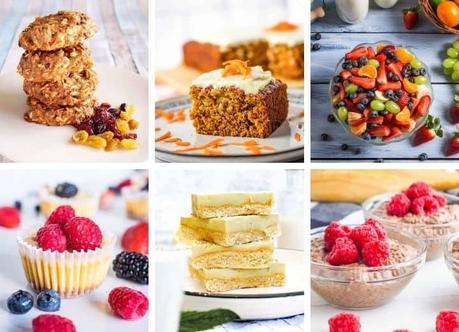
I don't think I've met a dessert I don't like! I have a serious sweet tooth. While I make sure to fill up on veggies, whole grains, and lean protein, if you tempt me with a dessert, I just can't resist!
The problem with most desserts is that they are extremely high in sugar! In addition, they're usually filled with refined carbohydrates, such as white flours. The combination of high sugar with refined carbs is what makes dessert an unhealthy indulgence.
But enjoying a sweet treat every once and awhile is okay, especially when you make some adjustments to some of your favorite desserts.
These 30 low sugar desserts are refined sugar free. Most also use whole grain, or gluten-free flours, such as almond flour, to increase the nutritional value.
So, don't fret! You can have your cake and eat it too!
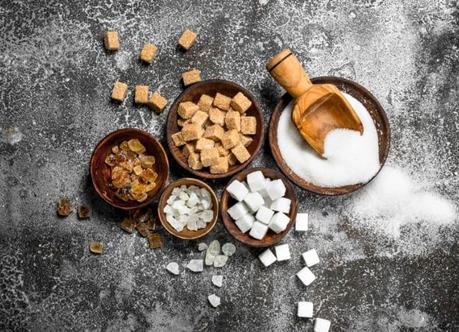
Why Would You Make Low Sugar Desserts?
There are several reasons why you may want to reduce the overall sugar in the desserts you make.
Reduce Calories: Sugar is extremely high in calories, with absolutely no nutritional value. When you indulge in a high calorie dessert you are eating empty calories. Reducing the overall sugar is a dessert will reduce the overall calories.
Reducing Sugar Intake: If you are trying to reduce your overall sugar intake, adding less sugar to your desserts will help you do so.
Less Sweet: If you don't like your desserts overly sweet, this is another reason to reduce the sugar you add to your desserts.
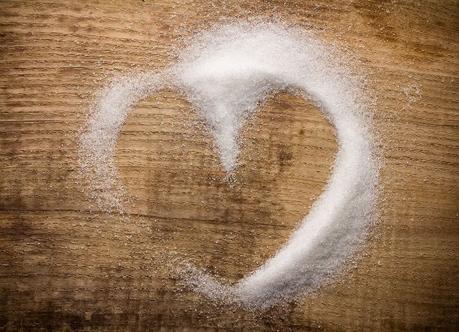
What Are The Benefits Of Using Less Sugar?
It would probably be best if we didn't consume any sugar at all, with the exception of fruit. However, that can be extremely challenging! I aim for the 80-20 rule - to go with no sugar 80% of the time, and very low added sugar 20% of the time. Reducing your overall sugar intake, and limiting the amount of sweet treats you indulge in, can have significant health benefits.
Weight Loss: Using less sugar means that you will consume fewer calories, which helps in weight loss. In addition, according to researchers, fructose can cause fat storage, so less fructose = less fat storage. High sugar foods also cause you to feel hungrier more quickly or frequently. This is because sugar is quickly processed through your digestive system, leaving you feeling hungry and unsatisfied. So using less sugar will help you to feel more satisfied after a meal, leading to less overeating.
Improve Mood: When you consume sugary foods your blood sugar spikes. This gives you a quick boost of energy, but then your blood sugar levels drop quickly, causing you to feel moody. Reducing sugar can help stabilize your mood.
Healthy Teeth: Consuming high sugar foods can cause tooth decay. The natural bacteria in your mouth uses sugar to grow. Overtime this causes a build up of plaque, which in turn causes tooth decay.
Improve Skin: Blood sugar spikes and drops causes inflammation and stress on your body. This can either cause acne, or dull dry skin.
Stabilize Energy: Without the sudden spikes and drops in blood sugar levels, your energy will stabilize, and increase. While sugar can give you a quick boost of energy, the sudden drop leaves you feeling even more tired.
Improve Digestion: Just as sugar can cause inflammation in your skin, it also causes inflammation in your digestive tract. While in the digestive tract, sugar ferments, and turns into glucose. As a result, you can feel quite a bit of stomach discomfort and indigestion.
Reduce Risk of Heart Disease: When sugar doesn't get used as energy it converts into fatty acids that become triglycerides. Triglycerides are a type of fat that circulates in the blood. When you have a high level of triglycerides you run the risk of developing heart disease, or stroke.
Improve Brain Function: A study at UCLA found that high sugar diets have a correlation with cognitive function. High sugar diets can have a negative impact on memory by causing insulin resistance, which can cause damage communication between brain cells. Sugar can also cause inflammation in the brain which in turn can make it difficult to focus and concentrate.
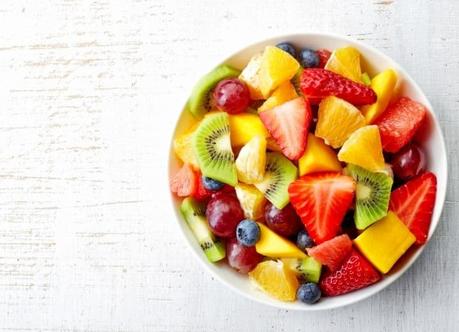
What Foods Can You Eat To Fight Sugar Cravings?
Fresh Fruit: The best way to enjoy something sweet that is also nutritious is to stick with fresh fruit. Slice an apple and enjoy with a tablespoon of peanut butter. Raspberries, blueberries, and strawberries are also delicious with a dollop of plain unsweetened yogurt.
Dark Chocolate: If you are a chocolate lover like me, dark chocolate is the way to go! It has much less sugar then milk chocolate. The higher the cocoa content the lower the sugar. While 90% dark chocolate can taste rather bitter, 70%, or 80% is just right! Just eat a small square to satisfy your sweet tooth!
Homemade Smoothies: Whip up a smoothie at home. The ones you get from the smoothie places are usually high in sugar. But making your own doesn't have to be! Add a frozen banana, fresh berries, and leafy greens, or carrots, with some dairy milk.
Trail Mix: Make your own trail mix with a variety of nuts, and dried fruit. Be sure to stick to 1/4 cup serving. It's easy to go overboard with trail mix!
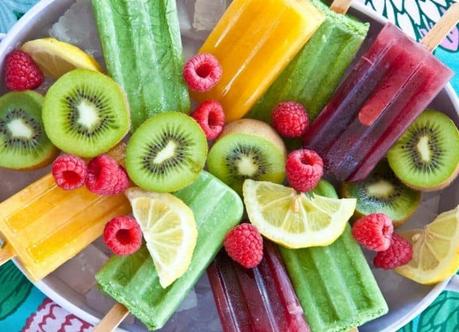
What Are The Healthiest Desserts To Eat?
Unsweetened Applesauce: Making your own homemade applesauce is easy, and a great way to enjoy something sweet without any added sugar! The sweetness of the apples with a touch of cinnamon is all you need!
Fruit Salad: There's no better way to enjoy something sweet and healthy than a bowl of fresh fruit salad. Chop up your favorite fruits. Choose ones with a variety of colors. There's no need to sprinkle any extra sugar on top!
Homemade Popsicles: Make your own homemade popsicles by blending fresh fruit, and dairy free milk in the blender. Pour into popsicle molds, place in the freezer, and enjoy!
Nice Cream: Using bananas, and no added sugar, nice cream is creamy, dairy free, and refined sugar free. Add your favorite flavorings such as a tablespoon of cocoa powder to make it extra special.
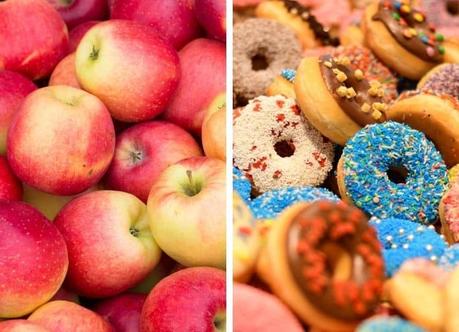
What Is The Difference Between Refined Sugar And Natural Sugar?
Natural Sugars: Natural sugars are found in fruit and dairy products. In fruit, the sugar comes in the form fructose. In dairy the sugar comes in the form of lactose. These foods contain nutrients, in the form of vitamins and minerals. They are also digested more slowly, so they help you feel fuller longer. As a result, consuming foods with natural sugars are high in nutritional value while also keeping you full and satiated.
Refined Sugars: These types of sugars come from cane sugar or sugar beets which are processed to extract the sugar from the original source. You will also find processed sugars added to foods such as high fructose corn syrup. These types of sugars are processed through the body quickly, causing a blood sugar spike, and sudden drop. These types of sugars have no vitamins or nutrients, and leave you feeling unsatisfied and hungry quickly.
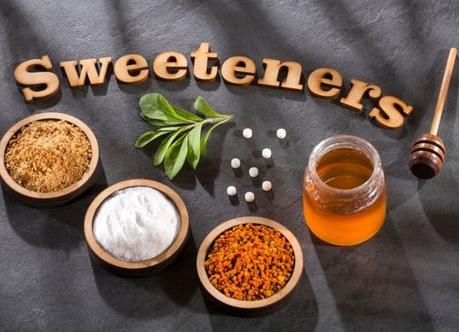
What Are The Best Sugar Substitutes?
While white sugar or high fructose corn syrup is the worst sugar to use, there are types of sweeteners that you can use in desserts that are less offending. These natural substitutes for sugar are less processed, and more natural than white sugar.
Monk Fruit Sweetener: A type of sweetener that is extracted from monk fruit. It contains zero calories and is 100-250 times sweeter than white sugar. Monk fruit gets its sweetness from antioxidants called mogrosides.
Coconut Sugar: Coconut sugar is extracted from the sap of the coconut palm. It has some nutrients including iron, zinc, calcium, potassium, and antioxidants. It's lower on the glycemic index than regular sugar. However, it is still high in calories.
Honey: This syrup produced by bees has small amounts of vitamins and minerals, and many antioxidants. Flavonoids are where honey gets most of its antioxidants. While there are some health benefits to honey, it still contains sugar, and is high in calories.
Maple Syrup: The sweet liquid that comes from the sap of maple trees. It contains minerals minerals including calcium, potassium, iron, zinc, and manganese, and even more antioxidants than honey. It is slightly lower on the glycemic index than regular sugar, but still high in calorie and can cause blood sugar spikes.
Tips And Tricks For Making Low Sugar Desserts
- Cut the sugar in half! If you're following a baking recipe, reduce the amount of sugar added. I recommend cutting it in half, or at least by a third.
- Substitute White Sugar: If a recipe calls for white sugar, use one of the sugar substitutes instead. These sugars are lower on the glycemic index, less processed, and contain vitamins, minerals, and antioxidants. Depending on the recipe, it's not suggested to use each as a 1:1 substitute. Monk fruit for example, is much sweeter than regular sugar.
- Use Whole Grain Flours: White flour turns into glucose when consumed. Use whole grains flours to increase nutritional value, and keep you feeling satiated longer.

